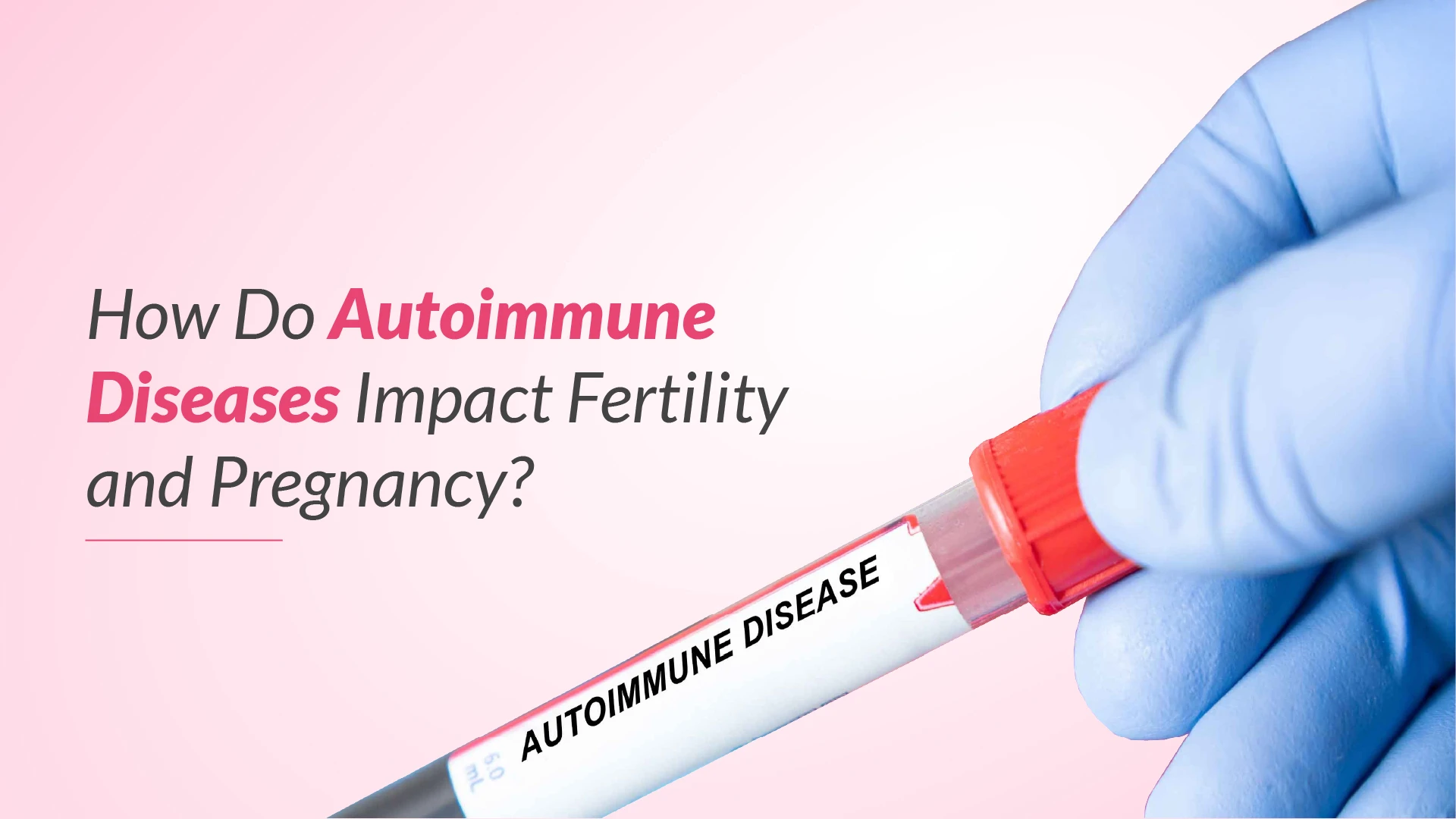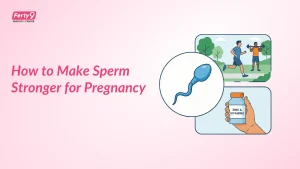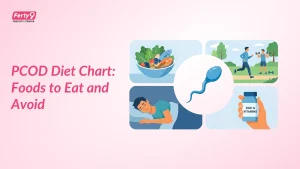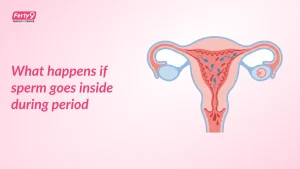Autoimmune diseases, which affect approximately 2% of women of reproductive age, can significantly impact fertility and pregnancy. Notably, eighty percent of all individuals affected by autoimmune disorders are women. If you’re managing an autoimmune condition and planning to start a family, you might wonder, “Can I get pregnant?” or “Will my autoimmune disease affect my fertility or my baby?” While these diseases present challenges, effective medical care can help many women achieve successful pregnancies.
Find Hope and Solutions for your Female Infertility.
What is Autoimmune Disease?
An autoimmune disease occurs when the immune system, designed to defend the body against infections and foreign invaders, mistakenly attacks healthy cells. This abnormal response can affect various organs and tissues, leading to inflammation, damage, and dysfunction in different parts of the body. Some well-known autoimmune diseases include lupus, rheumatoid arthritis, thyroid disorders (such as Hashimoto’s and Graves’ disease), and multiple sclerosis.
Also read: Tips for a Healthy Pregnancy Following Successful Fertility Treatment
What Causes Autoimmune Disease?
The exact cause of autoimmune diseases isn’t entirely clear. However, a mix of genetic, environmental, and hormonal factors is believed to contribute. Some people may inherit a predisposition to these conditions, and environmental triggers like infections, toxins, or stress may activate the disease. Hormonal changes, particularly in women, can also play a role, as autoimmune diseases are more common in females than males.
Autoimmune Disease Symptoms
Symptoms of autoimmune diseases change depending on the specific condition. Common signs include:
- Chronic fatigue
- Joint pain and swelling
- Skin rashes
- Fever
- Digestive issues
- Unexplained weight loss or gain
Since these autoimmune disease symptoms overlap with many other conditions, it’s crucial to get a proper diagnosis if you suspect an autoimmune issue.
Related Read: Signs and Symptoms of Female Infertility
How do Autoimmune Diseases Affect Female Fertility?
Autoimmune diseases can impact female fertility in several ways. For instance, antiphospholipid syndrome can cause infertility; conditions like rheumatoid arthritis may disrupt menstrual cycles and hormone levels, making it more difficult to conceive. Autoimmune diseases can also affect the ovaries and fallopian tubes, potentially leading to issues such as reduced egg quality or blockages that interfere with fertilization.
Additionally, some autoimmune conditions may lead to early menopause or premature ovarian failure. Women with these conditions may experience diminished ovarian reserve, affecting their ability to produce healthy eggs. Managing these effects often requires specialized medical intervention and a coordinated care approach.
Also read: Tips for Improving Egg Quality in Female Infertility Treatment
Autoimmune Diseases and Male Fertility
Autoimmune disorders can also affect male fertility, though they are less common in men. In males:
- Autoimmune Orchitis: It is a condition where the immune system targets the testes, leading to impaired sperm production and quality.
- Rheumatoid Arthritis (RA): RA and other systemic autoimmune diseases may indirectly reduce fertility due to inflammation and the side effects of medications.
- Thyroid Disorders: Hormonal imbalances caused by thyroid disorders can also affect sperm production.
Just like women, men with autoimmune diseases should seek medical advice if they are facing difficulties in conception.
Suggested Read: AndroMax: Ferty9’s Solution for Enhancing Male Fertility
Pregnancy Challenges for Women with Autoimmune Diseases
Pregnancy can give unique challenges for women with autoimmune diseases:
Increased Risk of Miscarriage
Autoimmune conditions like lupus and antiphospholipid syndrome and pregnancy are closely related. These conditions can elevate the risk of miscarriage due to abnormal immune responses affecting blood clotting and inflammation.
Preterm Birth and Preeclampsia
Women with autoimmune disorders like lupus or rheumatoid arthritis face a higher risk of preeclampsia, which is marked by high blood pressure and preterm birth (before 37 weeks of gestation).
Placental Issues
Autoimmune diseases can lead to placental problems, such as abruption (placenta detaching from the uterine wall) or insufficiency (inadequate nutrient and oxygen supply). Conditions like lupus and Hashimoto’s thyroiditis are associated with these risks, impacting the baby’s growth.
Effect of Medications During Pregnancy
Medications for autoimmune diseases, like methotrexate for rheumatoid arthritis and multiple sclerosis can be harmful during pregnancy. Drugs used for lupus and psoriasis may also need adjustments. Adjustments to treatment plans are often required to balance the mother’s health with the safety of the baby.
Despite these challenges, with proper medical care and autoimmune disease treatment, many women with autoimmune diseases can still have healthy pregnancies and successful outcomes.
Managing Fertility and Pregnancy with Autoimmune Diseases
Even though autoimmune diseases can complicate fertility and pregnancy, they don’t make it impossible. With the proper planning and medical support, many individuals with autoimmune disorders can have successful pregnancies.
Preconception Counseling
Before trying to conceive, it’s a good idea to have preconception counseling with your doctor. This helps in understanding how your condition might impact your fertility and pregnancy. Your doctor may suggest adjusting medications or undergoing genetic testing for autoimmune disease to ensure that you are in the best health possible before conceiving.
Monitoring and Adjusting Medications
Since some autoimmune medications can harm the baby, careful monitoring is essential. You may need to switch to safer alternatives or temporarily stop specific treatments during pregnancy. However, this decision should be made under medical supervision, as stopping medication abruptly can cause disease flare-ups.
Specialized Care and Monitoring
Throughout pregnancy, women with autoimmune diseases often require more frequent check-ups. Specialized care from rheumatologists, obstetricians, and maternal-fetal medicine specialists can ensure close monitoring of both the mother and baby’s health.
Find Hope and Solutions for Infertility Problems—Explore Our Comprehensive Services
IVF Treatment
IUI Treatment
ICSI Treatment
Fertility Preservation Service
Blastocyst Culture & Transfer Treatment
Conclusion
In summary, while autoimmune diseases can make fertility and pregnancy more challenging, they don’t close the door entirely. With early planning, proper medical care, and regular monitoring, it’s possible to manage your condition and work towards a healthy pregnancy.
If you or someone you know is facing fertility concerns due to autoimmune diseases, Ferty9 Fertility Clinic is here to help. Our team of specialists in Ferty9 is experienced in handling complex fertility cases and will provide personalized care and support throughout your journey. Reach out to us today to discuss how we can assist you in achieving a healthy pregnancy.




























